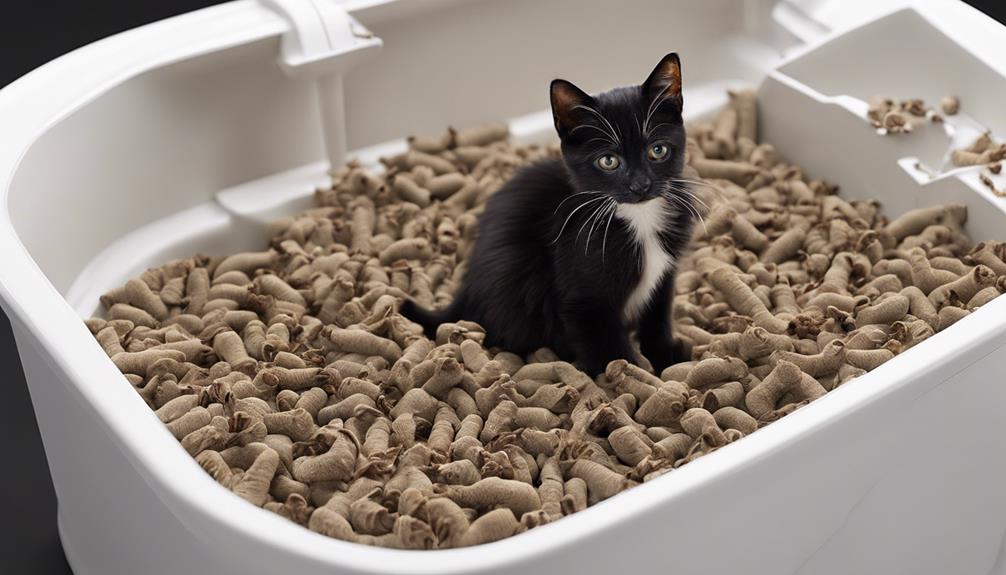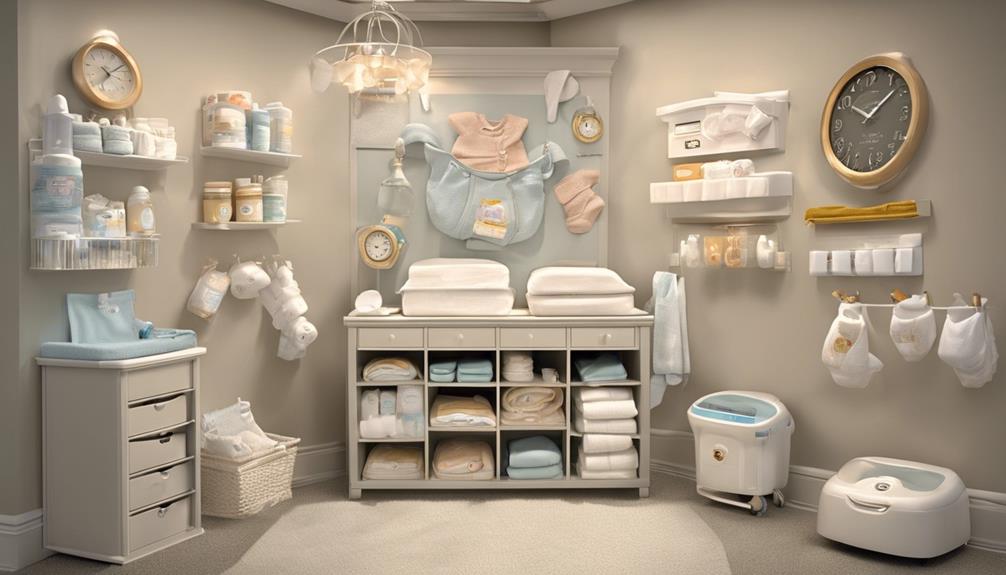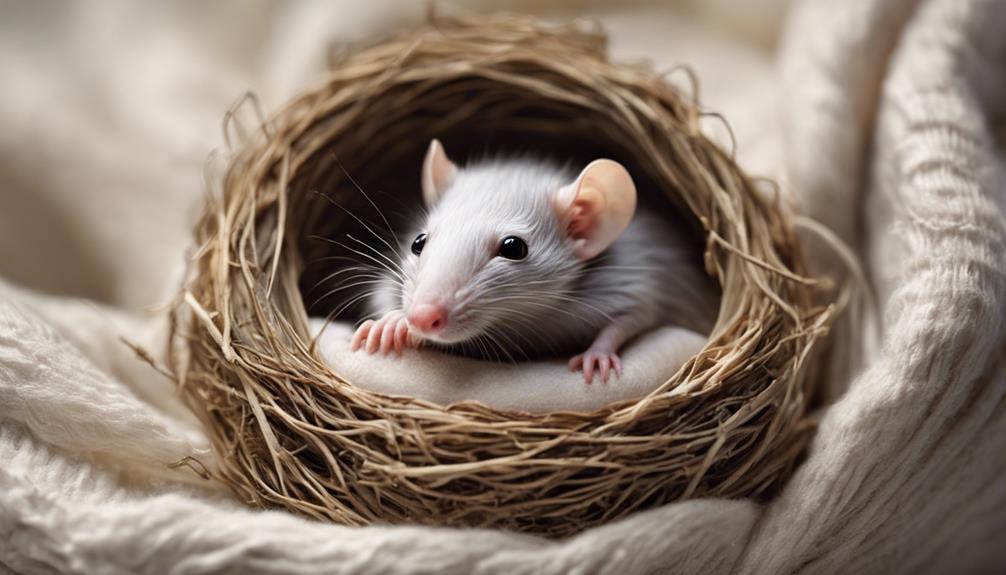As cat owners, we may not realize that newborn kittens actually require assistance to pass stool during their early days.
Ever wondered how exactly this process works? Understanding the intricacies of how newborn kittens poop can be important in ensuring their health and well-being.
Stay tuned to discover the essential techniques and guidelines that can help you navigate this delicate aspect of caring for your tiny feline companions.
Key Takeaways
- Newborn kittens require external stimulation for bowel movements.
- Monitoring poop frequency and characteristics is essential for health.
- Abnormal poop colors or textures indicate potential health issues.
- Proper care, hygiene, and veterinary attention ensure healthy pooping habits.
Development of Kitten Digestive System
As newborn kittens enter the world, their digestive system begins a journey of gradual development, shaping their early reliance on external stimulation for bowel movements. At birth, kittens' digestive systems are immature, necessitating assistance from their mother or caretaker to initiate bowel movements. This reliance on external help highlights the critical role of proper care in ensuring the health and well-being of newborn kittens.
Around 3 weeks of age, a maturation process begins, allowing kittens to gain more control over their bowel movements and eventually defecate independently. Understanding the intricacies of a kitten's digestive system development is essential for promoting their overall health and facilitating a smooth shift to self-sufficiency. Providing a nurturing environment and attending to their evolving needs play a significant part in supporting kittens through this important stage of growth.
Proper care during this period sets the foundation for their future well-being and independence.
Stimulating Kitten Bowel Movements
Upon the birth of newborn kittens, their lack of bowel control necessitates external stimulation to facilitate the process of defecation. Proper stimulation not only helps them eliminate waste but also teaches them how to properly urinate and defecate.
Here are three key points to contemplate when stimulating a kitten's bowel movements:
- Gentle Massage: Gently massaging the anal area of the kitten can help trigger both urination and defecation. This mimics the action of a mother cat licking to stimulate bowel movements.
- Use of Warm Cloth or Cotton Ball: After feeding, using a warm wet cloth or a soft cotton ball to stimulate the anal region can encourage the kitten to relieve itself. The warmth and gentle touch can aid in the process.
- Maintaining Hygiene: It's vital to practice proper hygiene when stimulating kittens to prevent infections. Make sure that the cloth or cotton ball used is clean and dispose of them properly after use to avoid contamination.
Monitoring Kitten Poop Frequency
Monitoring the frequency of a newborn kitten's bowel movements is essential for gauging its digestive health and overall well-being.
Newborn kittens typically have fewer bowel movements per day compared to older kittens and adult cats. A healthy newborn kitten should have at least one bowel movement daily, indicating proper digestion and nutrition.
Changes in poop frequency can be a red flag for issues like constipation or diarrhea, necessitating prompt attention and veterinary care.
By consistently monitoring your kitten's poop frequency, you can quickly identify any abnormalities or health concerns that may arise. This proactive approach allows for timely intervention and guarantees your kitten's well-being.
Identifying Healthy Vs. Unhealthy Poop

To distinguish between healthy and unhealthy kitten poop, observing its consistency, color, and other characteristics is paramount for evaluating the kitten's overall health. When monitoring your kitten's bowel movements, here are some key indicators of healthy vs. unhealthy poop:
- Healthy Kitten Poop: Typically solid, brown in color, and well-formed.
- Metamorphosis Phase: Meconium in a kitten's first poop may appear dark or green but should shift to normal stool as they mature.
- Warning Signs: Gray, white, or orange stool, mucus, blood, or abnormal colors like red, black, or yellow may indicate health issues requiring veterinary attention.
As your kitten grows and evolves to solid food, changes in their pooping habits are normal. However, sudden or persistent abnormalities in their stool should prompt a closer look at your kitten's health. Regularly checking the litter box for any deviations from healthy kitten poop can help you provide timely care and maintain your kitten's well-being.
Managing Kitten Pooping Issues
When managing kitten pooping issues, ensuring regular monitoring and prompt veterinary intervention for any abnormalities is essential for maintaining their health and well-being.
Newborn kittens require gentle stimulation for bowel movements to help them with toileting, as they may not have full control initially. It's important to keep an eye on their poop frequency and consistency, as any signs of constipation, diarrhea, or unusual stool colors should prompt a visit to the veterinary.
Understanding the temporary lack of bowel control in newborn kittens is important, and providing a clean and warm environment can support healthy pooping habits.
Frequently Asked Questions
Do Mama Cats Help Their Kittens Poop?
Yes, mama cats help their kittens poop by licking and stimulating their anal region. This action mimics natural toileting cues, ensuring cleanliness and health. Mother cats instinctively know to assist their young, playing an essential role in their care.
How Do Newborn Kittens Poop?
Oh, you won't believe how newborn kittens handle their business! Initially, we rely on external help for pooping. With gentle stimulation in the right spots, we get things moving. It's quite the process!
How Long Do Mother Cats Eat Their Kittens Poop?
We don't eat our kittens' poop. Mother cats typically stop eating their kittens' feces once they start weaning. It's important for their health and development. We, as responsible cat owners, should provide a clean environment for the kittens to thrive.
How Long Can Newborn Kittens Go Without Pooping?
We know newborn kittens can go 24-48 hours without pooping as their systems develop. Delayed pooping is normal, but if it persists, it may signal an issue needing vet attention. Prompt monitoring is vital for their health.
Conclusion
To sum up, caring for newborn kittens requires patience, attention to detail, and a good understanding of their unique needs.
By following proper stimulation techniques and monitoring their poop frequency, cat owners can guarantee the health and well-being of these precious felines.
Remember, an ounce of prevention is worth a pound of cure – so stay informed, stay vigilant, and always prioritize the welfare of your little fur babies.









